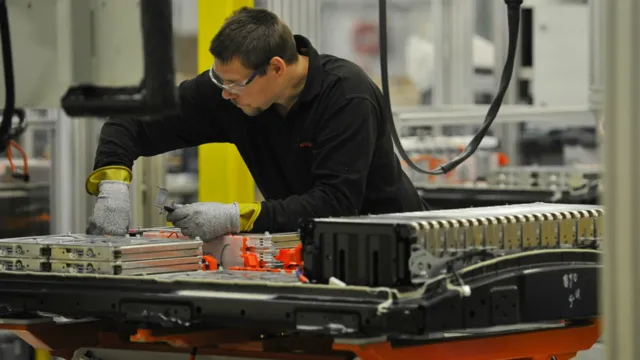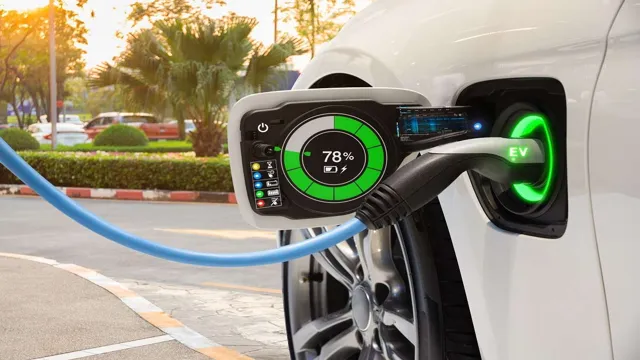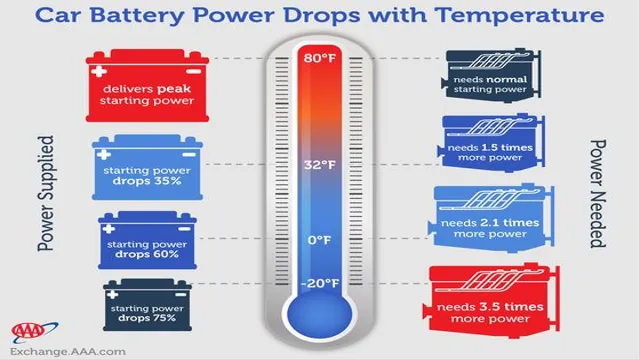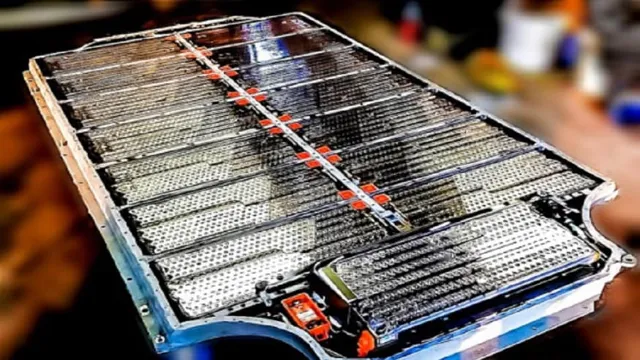Revolutionizing Driving: The Rise of Electric Car Batteries Production
Have you ever wondered why the hype around electric cars is increasing? Well, the answer lies in the batteries powering these green vehicles. As the world moves towards a more environmentally conscious future, a shift towards electric cars has become inevitable. And with this transition, the technology behind the batteries that power them has been rapidly evolving.
The rise of electric car batteries has become a game-changer in the automotive industry. Gone are the days when electric cars had a limited range and required multiple recharges for long-distance drives. With the advancement in battery technology, electric cars can now travel longer distances, with some models boasting a range of up to 400 miles per charge.
Not only do these batteries enhance the convenience and practicality of electric cars, but they also help reduce the carbon footprint of transportation and make green mobility more accessible than ever before. One of the most significant developments in battery technology is the use of lithium-ion batteries. These batteries boast a higher energy density, longer lifespan, and faster charging times when compared to traditional lead-acid batteries.
Moreover, researchers are exploring new ways to make lithium-ion batteries cheaper, more efficient, and safer, ensuring that they provide better performance in electric cars. In conclusion, the rising popularity of electric cars is a testament to the advancements in battery technology. With these batteries improving rapidly, it won’t be long before electric cars become the norm on our roads.
The benefits of these greener vehicles go beyond just reducing environmental impact and increasing convenience as they provide an opportunity to create a more sustainable future.
Current Market Share
Electric car batteries production has become increasingly important in the current market. According to recent data, the market share for electric cars is expected to grow significantly over the next decade. As a result, companies that specialize in producing batteries for electric cars have become more prominent in the industry.
Currently, the market is dominated by some of the biggest names in the automotive industry, such as Tesla, Panasonic, LG Chem, and CATL. These companies have continued to invest heavily in the production of electric car batteries in order to meet the growing demand for electric vehicles. It’s not just established players who are investing in electric car batteries production, however.
New companies are also entering the market in order to capture a slice of this lucrative market. The competition has led to innovation in the industry, with new battery technologies and designs that offer longer ranges and faster charging. With the continued growth of the electric car market, it’s clear that electric car batteries production will play a crucial role in the future of the automotive industry.
Top Electric Car Battery Producers
The electric vehicle industry is booming, and with it, the demand for high-quality lithium-ion batteries. Currently, the top electric car battery producers by market share are Panasonic, CATL, and LG Chem. Panasonic is the largest supplier of batteries to Tesla and holds approximately 30% of the electric vehicle battery market share.
Meanwhile, CATL is the world’s largest electric vehicle battery manufacturer, supplying batteries to major automakers like BMW and Volkswagen. LG Chem rounds out the top three, with a market share of around 10%. However, competition in the industry is fierce, and there are many emerging players seeking to gain their slice of the pie.
With advancements in battery technology continuing to improve efficiency and decrease costs, it will be fascinating to see which companies come out on top in the years to come.

Recent Production Trends
In recent years, there have been noticeable shifts in the production trends of different industries. One of the most significant changes is the rise of renewable energy and electric vehicles in the market. As the demand for sustainable solutions grows, so does the market share for companies that produce renewable energy solutions and electric vehicles.
In 2020, electric vehicles made up 6% of total global vehicle sales, a 43% increase from the previous year. Additionally, solar and wind energy continue to increase in popularity, with solar panels alone accounting for over 2% of the world’s electricity.
This shift towards sustainability is not just a passing trend, but rather a growing movement that is likely to continue for years to come. As a result, companies that prioritize renewable energy and sustainability in their production processes are likely to capture a larger market share and remain leaders in their respective industries.
Advancements in Battery Technology
Electric car batteries production is advancing at an unprecedented pace. Recent developments in battery technology have made electric vehicles more efficient, less expensive, and more widely available. One major advancement is the use of solid-state batteries, which replace the liquid electrolyte in traditional batteries with a solid-state electrolyte.
This technology allows for greater energy storage and faster charging times, making electric cars more practical for everyday use. Additionally, companies are exploring new materials such as silicon and lithium-sulfur to enhance the performance of electric car batteries. As a result, electric cars can now travel longer distances on a single charge, and the cost of production is steadily decreasing.
With more and more automakers investing in electric vehicles, the demand for advanced battery technology will only continue to grow, driving further advancements in electric car batteries production.
Longer Range and Faster Charging
Advancements in Battery Technology are enabling longer range and faster charging for our electric vehicles. One of the latest breakthroughs in battery tech is the development of solid-state batteries, which replace the traditional liquid or gel electrolyte with a solid material. This not only increases energy density, but also reduces the risk of fire and boosts charging speed.
Another exciting development is the use of lithium-sulfur batteries which have the potential to hold five times more energy than traditional lithium-ion batteries while also being lighter. These advancements in battery technology are crucial for the widespread adoption of electric vehicles as they are able to provide a greater range and faster charging times, making electric vehicles more practical for everyday use. As more research is conducted, we can expect to see even more breakthroughs in battery technology that will further revolutionize the electric vehicle industry.
Sustainable and Eco-Friendly Materials
Advancements In Battery Technology: The Key To Sustainable And Eco-Friendly Materials Advancements in battery technology have made it possible to create more sustainable and eco-friendly materials, which is a crucial development in our fight against climate change. Lithium-ion batteries, for example, are much more efficient than traditional lead-acid batteries, and they can be charged and discharged many more times before they need to be replaced. This has led to the production of electric cars and other vehicles that offer a much lower carbon footprint than traditional ones.
Additionally, companies are investing in developing new materials for batteries that are more environmentally friendly and less dependent on rare and expensive metals like cobalt. For example, some companies are looking into using materials like sodium-ion or zinc-ion for batteries. Such advancements in battery technology will allow us to continue developing new and sustainable materials that have a lower impact on the environment.
Affordability and Accessibility
Advancements in battery technology are pushing for more affordable and accessible renewable energy sources. Batteries with higher energy densities are being developed, offering longer hours of energy storage for homes and businesses that use solar panels or wind turbines as their primary sources of power. This improved technology allows smaller and more efficient battery installations, favorably impacting the overall affordability of renewable energy.
Plus, the accessibility of these batteries is also enhanced as they become more compact and easier to install. With more households and companies adopting renewable energy, battery technology advancements are critical in making it a reliable and cost-effective energy source. As such, we can expect even more developments in the field that will further improve affordability and accessibility.
The future looks promising for renewable energy and battery technology.
Future Outlook
The future of electric car batteries production looks very promising since more and more car manufacturers are shifting towards producing electric vehicles. This shift will surely increase the demand for electric car batteries and will require companies to invest heavily in research and development to improve battery technology and production. Battery technology is evolving rapidly, and with advancements in technology, the production cost of electric batteries is decreasing, making it more accessible for the end-consumers.
Additionally, the increasing number of charging stations all around the world makes electric vehicles more practical for long journeys and everyday commutes. Hence, the electric car batteries production industry is poised for significant growth in the coming years, and we can expect numerous breakthroughs in the field of battery technology that will make electric vehicles even more appealing to the masses.
Projected Growth in Production
The future outlook for production growth is looking very promising, not just in the short term but also in the long term. Many industries are experiencing technological advancements, and there is a lot of emphasis on innovation to drive growth. The incorporation of automation, artificial intelligence, and other smart technologies have made production more efficient and streamlined, leading to an increase in output.
As a result, the demand for goods and services is on the rise, and businesses are expanding their operations to meet this demand. The agriculture sector, for instance, is projected to see a 58% growth in production by 2050, according to the United Nations. This significant growth will be fueled by improved techniques such as vertical farming, which allows for more crop cultivation in limited space while reducing the consumption of resources.
The healthcare industry is also projected to experience a major shift, with the focus shifting towards preventive medicine, leading to a boost in production of medical devices, medicines, and associated tech. Overall, with the right strategies and investments, the projected growth in production is very positive, and it’s up to each industry to grab this opportunity and thrive.
Increased Investment and Innovation
Looking into the future, the tech industry is poised for increased investment and innovation. Companies are constantly pushing boundaries and seeking out new opportunities to stay ahead of the competition. With advancements in artificial intelligence, virtual reality, and internet connectivity, the possibilities for growth and development are endless.
As more and more businesses embrace digital transformation, the demand for new and innovative technology will only continue to rise. This presents a great opportunity for investors, who can expect to see exponential returns on their investments. With so much potential for growth, it’s easy to see why the tech industry is one of the most exciting and dynamic sectors in the global economy.
The key to success in this industry is being able to adapt and evolve quickly to new trends and technologies. Start-ups can gain a strong foothold in the market by developing novel solutions and leveraging emerging technologies. Larger companies can also benefit from partnerships and collaborations with start-ups to stay on the cutting-edge of development.
As we move forward, it will be fascinating to watch how technology continues to shape our world and how businesses both large and small respond to these changes. All signs point to continued innovation and investment in the tech sector, making this an exciting time for anyone looking to get involved.
Conclusion
In conclusion, the production of electric car batteries is a shining example of innovation and the potential for progress in our automotive industry. As we continue to seek sustainable solutions for transportation, the creation of these batteries proves that we can harness the power of electricity to revolutionize the way we travel. So if you’re thinking about switching to an electric car, just remember: every battery you’re sitting on is a little piece of our electrifying future!”
FAQs
How are electric car batteries produced?
Electric car batteries are produced by assembling lithium-ion battery cells into packs, which are then integrated into the car. The production process involves choosing the right type of materials, designing the battery pack, and rigorously testing and optimizing the battery.
What are the advantages of electric car batteries over traditional car batteries?
Electric car batteries offer several advantages over traditional car batteries, including their ability to store and deliver large amounts of energy, their longer lifespan, and their lower environmental impact. Additionally, because they do not rely on fossil fuels, electric car batteries are more sustainable and can help reduce greenhouse gas emissions.
How long does it take to produce an electric car battery?
The production time for an electric car battery can vary depending on several factors, including the size of the battery, the manufacturing process, and the number of units being produced. Some large-scale battery production facilities claim to be able to produce up to 1,000 batteries per day.
What challenges do manufacturers face when producing electric car batteries?
The production of electric car batteries poses several challenges for manufacturers, including the high cost of materials, ensuring consistent quality and performance in each battery, and developing efficient recycling and disposal processes. Additionally, the demand for electric cars and batteries is growing rapidly, which puts pressure on manufacturers to scale up production capabilities and maintain high levels of quality.





